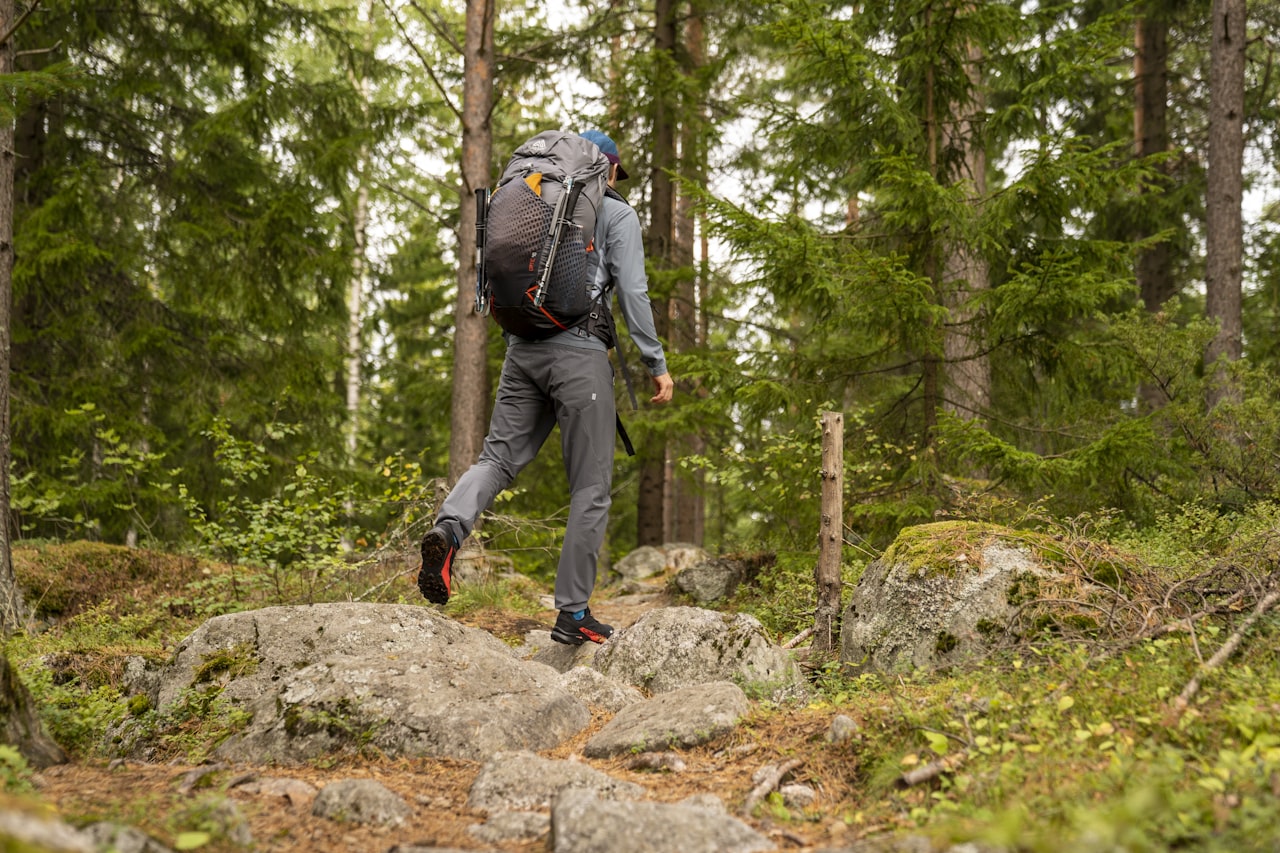Gaining official status in 1987, The Colorado Trail (CT) is a premiere trail between Denver and Durango, Colorado. Stretching 567 miles in total, this trail offers breathtaking mountain views, strenuous passages, and wholesome adventure for hikers, mountain bikers, horseback riders, and backpackers.
The History
Gudy Gaskill and Bill Lucas joined forces in Washington DC and got approval through the Volunteers in the National Forests Act to use volunteers to create The Colorado Trail on May 18, 1972. Over the next couple of years, word spread on the creation of the trail. In 1974, the Colorado Mountain Trails Foundation (CMTF) was established and this was considered the birth of the CT. A decade later, the trail construction lost momentum only to be rekindled and gain official status on October 5, 1987 as The Colorado Trail Foundation (CTF). “Golden Spike” ceremonies were held on Molas Pass, Camp Hale, and Mt. Princeton to celebrate the completion of The Colorado Trail.
Since then, numerous guide books, articles, maps, and phone apps have been created for the CT. An additional Collegiate West section was added to the trail, another 80 miles for an alternative route north to south or for a 160 miles Collegiate Peaks loop. Field Operation Centers have been built to provide a “base camp” and the Gudy Gaskill bridge can be found spanning the South Platte River in recognition of the Colorado Women’s Hall of Fame lady who started the CT.
The Trail
The 567 miles guides you from Denver to Durango - or vice versa - and is split into 33 segments. There is a total of 89,000 feet elevation gain with an average elevation of 10,300 feet and a high point of 13,271 in segment 22. The trail is generally narrow with river crossings and sections that take you through many National Forest, Wilderness Areas, and State mountain ranges.
CTF Volunteers and the US Forest Service work together in maintaining and administering the CT. Trail crews take on rebuilding and aligning trail sections, closing off spur trails, and more.
Traveling on The Colorado Trail
This trail is typically enjoyed in July, August, and September due to long lasting snowpack and early winter storms. Completing the full thru-hike generally takes 4-6 weeks meaning 10-14 miles each day. While both ends of the trail are easily accessible from Denver and Durango respectively, there are many ways to gain access to parts of the trail including cars (including shuttles), 4 wheel drive trails, horseback, and even by train.
Elevation sickness, weather, and other unforeseen hiccups such as injury can become a dangerous situation on the CT - or any trail for that matter. Being prepared for these situations is pertinent in ensuring an enjoyable and safe experience. Depending on the itinerary, be prepared with extra food, water, warm clothes, and other essentials in case of delay. Proper storage of food items is important so that bears and other wildlife don’t take a portion. Water treatment options such as iodine and filters can be used throughout the trip, but there are some segments without the natural resource. The Colorado Climate is semi-predictable but can change drastically within hours. There are resupply towns along the way and you may encounter a serendipitous trail angel camp along the trail too. Keep updated on trail closures, alerts, and reroutes prior to starting out on your trip as well!
If planning and preparing seems overwhelming to take on yourself, consider a guided and supported trek to take on the CT. Professional CTF guides will lead the way on multi-day excursions to experience the Colorado Trail and be provided with gear transport, gear rental, camp meals, and a backcountry shower.
The Colorado Trail and Durango, CO
As one of the end points of this grand trail, Durango provides a great place to start or end your journey. There are many outdoor stores with supplies and people with tales of their own times on the CT.
Junction Creek, the beginning/end point is just 4.7 miles from downtown Durango for easy access. This section along with other nearby access points such as La Plata Canyon, Bolam Pass, and Molas Pass offer shorter legs to take in the exceptional views from.
Perhaps not as well known as the Pacific Crest Trail (PCT) or Appalachian Trail (AT), the CT is a stunning trail that shouldn't be missed. Please don’t hesitate to contact us with questions about the Colorado Trail or other Durango hiking trails.
Learn about the Continental Divide Trail (CDT) which is sometimes mistaken with the CT here.




